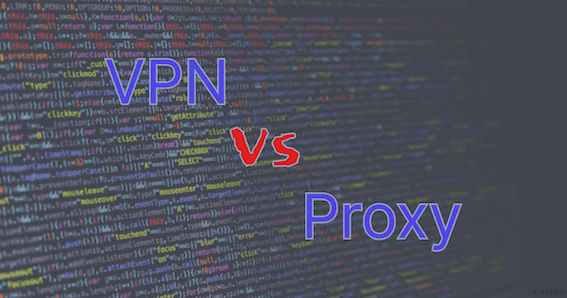Explaining the difference between technologies
VPN or proxy: which is better?
Proxies and virtual private networks (VPNs) are widely used during this age of internet privacy and security. Despite sharing some functions, they have different ways of operation with varying benefits. This article will describe the main disparities between these two tools as well as show when it is better to use one over another.

What is a Proxy?
A proxy server acts as an intermediary between your device and the internet. In other words, when you connect through a proxy server, it is that server which connects to websites on your behalf. Consequently, this hides your IP address by making requests appear like they are coming from somewhere else - usually where the proxy server is located.
Types of Proxies:
- HTTP Proxies These are designed specifically for web traffic so they can handle requests from websites; good for browsing, unblocking sites or web scraping.
- SOCKS Proxies More versatile than HTTP proxies because SOCKS proxies can handle different types of traffic including email, FTP and torrenting among others; work at lower level giving them more flexibility but often slower.
- Transparent Proxies Unlike other types of proxies, transparent proxies do not hide your IP address; instead organizations use them for content filtering and caching.
What is a VPN?
Virtual Private Network (VPN) refers to any secure connection created over an existing network such as the internet between two points. It encrypts all data sent/received thereby ensuring that it remains private even if someone snoops on it while in transit across public networks like Wi-Fi hotspots - this includes passwords or credit card numbers entered online.
Key Features of a VPN:
- Encryption All traffic passing through a VPN tunnel is encrypted hence provides high level security & privacy protection
- IP Masking Like proxies, VPNs also hide your IP address but across all applications not just web browser
- Access to Geo-restricted Content With VPNs one can make appear as if they were connected from different location thus bypassing geo-restrictions and censorship
- Data Integrity and Protection Even if data gets intercepted; encryption guarantees that it can`t be read or modified
Advantages of VPN Over Proxy
- Security & Encryption A VPN encrypts your entire internet connection while a proxy does not. Therefore, although both tools hide the users IP addresses, only VPNs provide end-to-end data protection against hackers and other threats online.
- Comprehensive Coverage Unlike proxies which are limited to web traffic alone, VPNs route/encrypt all internet traffic from the device used. This includes emails, apps etc., thereby offering more comprehensive security measures.
- Avoidance of ISP Throttling By disguising one`s traffic through an encrypted tunnel created between their computer/smartphone/tablet and server operated by given service provider; virtual private networks can help prevent data rate limiting due to specific types of data (like video streaming) being recognized by ISPs.
- Anonymity & Privacy Virtual Private Networks usually operate under strict no-logs policies meaning they don`t keep records about user activities on the web hence providing higher levels of anonymity than most proxies.
When to Use Proxy
- Fast Bypassing of Geo-restrictions If you want to access a website or service that is restricted in some countries temporarily without necessarily needing encryption, then proxy would do just fine.
- Web Scraping and Automation A proxy may be used for tasks such as web scraping or automated data collection where low latency and high speed are important.
- Lightweight Browsing When it comes to basic web browsing, where safety and anonymity are not a priority, but you need to change your IP address.
When Should You Use a VPN?
- Privacy and Security In order to safeguard against potential threats and data breaches while using public Wi-Fi networks or dealing with sensitive information, use VPNs.
- Censorship-Affected/Sensitive Content Access If one is located in an area with severe internet censorship or wants safe access to restricted content - then this service is best provided by virtual private networks (VPNs).
- All-Round Online Protection VPNs are the most suitable choice for people looking for complete online protection not only during browsing sessions but also when engaging in other activities on the internet.
- ISPs Monitoring & Throttling Avoidance The only sure way to ensure that your ISP does not monitor what you do over the internet as well as prevent them from throttling down your connection speed is through use of VPNs.
Conclusion
Although both proxies and VPNs keep you anonymous online by hiding your IP address; they have different uses and levels of security. Proxies should be used when there is no need for encryption but still require masking of IP addresses especially during less critical tasks. On the other hand, if privacy or security matters a lot to someone then he/she must go for Virtual Private Networks since these provide secure connections which encrypt all traffic between their users` devices and servers thereby making them more preferred over any other method. Therefore understanding each type strengths plus limitations will enable one select appropriate software for particular requirements.